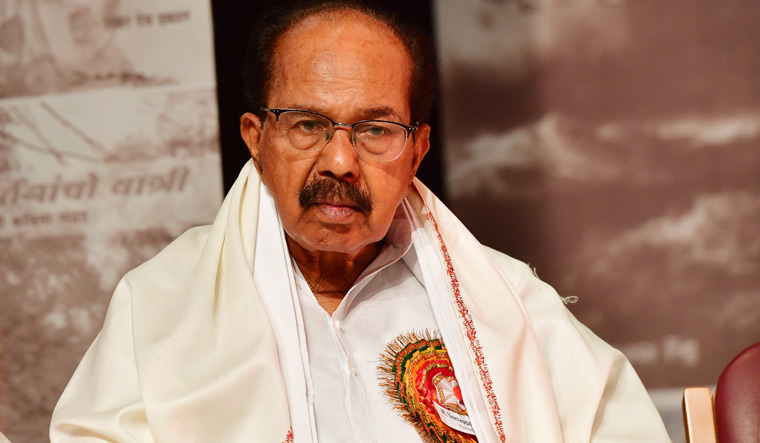Former Union minister M. Veerappa Moily, the loudest voice in the Manmohan Singh government demanding caste census in 2011, says the Modi government's refusal to conduct caste enumeration has exposed its claims about working for the benefit of the OBCs. In an exclusive interview with THE WEEK, he says the reasons given by the government for not conducting a caste census are unconvincing. He also criticised the Modi government for not releasing the findings of the socio-economic caste census (SECC) carried out by the UPA government. Excerpts:
Why does India need a caste census?
There are several guarantees and schemes that are extended by the Central and state governments that are meant for the uplift of the marginalised. While the figures of the Scheduled Castes and Scheduled Tribes and the religious minorities are known and updated every ten years because these communities are counted in the census, when it comes to OBCs, their exact figures are not known. The last time a caste census was carried out was in 1931. If we have the data with regard to the numbers and the socio-economic development of OBCs, reservation and other benefits that empower them and improve their condition can be provided in a targeted manner. When the figures are known, the percentage of reservation can be decided in a more scientific manner, and it can also be decided whether certain categories whose development indices are good can be removed from the ambit of reservation.
It is often asked why the UPA government did not make public the results of its socio-economic caste census.
The UPA government had in 2011 taken a decision on undertaking an enumeration of castes. The work on the 2011 census was already in progress. So our government decided that a separate socio-economic caste census would be conducted. There were some discrepancies in the findings which had to be cleaned up before the report could be finalised. The UPA went out of power before the report could be finalised. The process was completed in 2016, when the NDA government was in power. However, the Modi government has so far chosen not to make the report public. The government told the Supreme Court that there were errors in the data. But the registrar general had stated that the data was 98.87 per cent error-free. There is no plausible reason for the failure of the present government to make the caste census figures public. The failure to conduct caste census or make the SECC figures public exposes the claims of the Modi government about working for the welfare of OBCs.
Critics of the Congress question its espousal of OBC interests, saying it has made a U-turn with regard to caste census and reservation for OBCs.
The Congress has always given top priority to the uplift of the poor and the marginalised. This includes the welfare of the backward classes. The Mandal Commission got extensions when the Congress was in power. The UPA government implemented the Mandal Commission's recommendations with regard to reservation in educational institutions.
The Centre says there are technical issues involved in carrying out a caste census at the Central level.
They have spelt out many reasons why they cannot carry out a caste census– from the requirement of a constitutional amendment to allow OBC count along with census to differences in castes among states. But these are all excuses. The census already includes a count of Scheduled Castes and Scheduled Tribes, so why can't the same be done for OBCs? By the way, the present government can use the SECC figures. That exercise is already completed.
The women's reservation legislation does not include a quota for OBCs. The UPA government's version of the bill passed in the Rajya Sabha in 2010 also did not have the sub-quota.
There must be quota for women belonging to the backward classes as part of women's reservation. The UPA government was not against it, but there were technical problems because of which the OBC quota was kept out of the legislation. A first step towards ensuring adequate representation for the OBCs in all spheres, including as part of reservation for women in the legislatures, is caste census.
Why is the Congress government in Karnataka not implementing the caste survey it had conducted in its previous term?
A comprehensive, door-to-door caste-based survey was carried out in Karnataka. There is a technical problem involved in its implementation. The secretary of the State Commission for Backward Classes did not sign the report. This was cited as a reason by the previous BJP government for not making the survey findings public. I am confident the issue will be resolved and the state government will release the findings.


